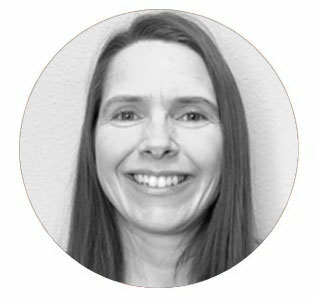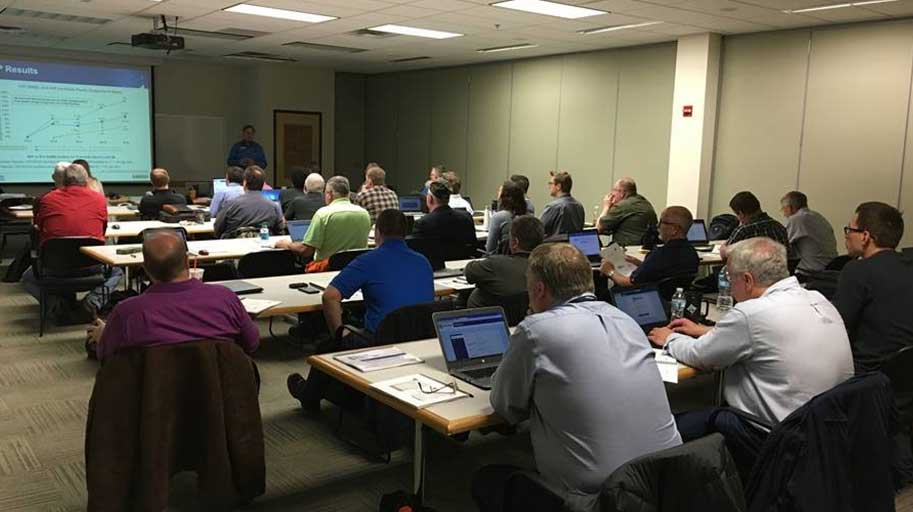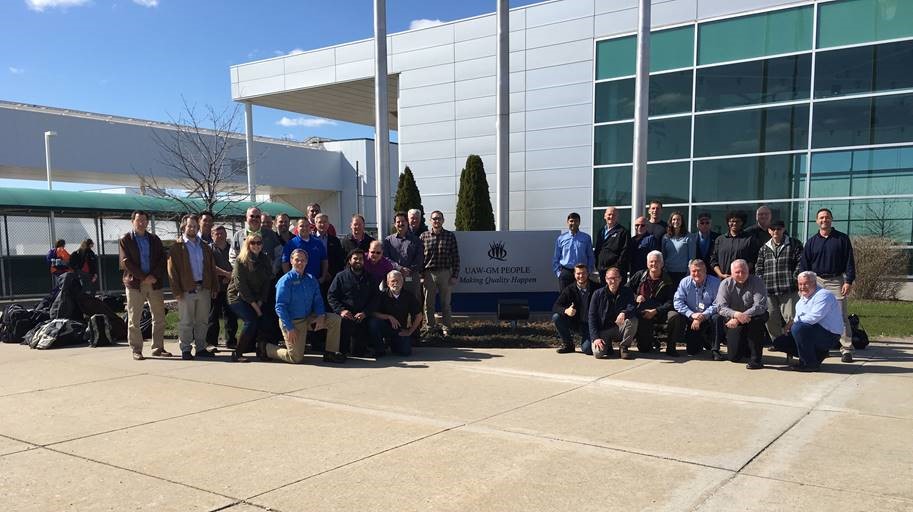Drinking water systems consume considerable energy, and their energy requirements are only increasing with stricter water quality standards, scarcer water supplies, and growing water demand. In order to operate sustainably, these critical utilities need to deliberately manage their energy use and costs. The Better Plants program has developed a special series of INPLTs for this purpose.
The Better Plants program will deliver virtual INPLTs for drinking water systems (Water VINPLTs) from September 28 to November 16, 2021. The Water VINPLTs will be performed online by drinking water experts and energy efficiency experts. The Water VINPLTs comprise eight (8) 2.5-hour online training sessions (2-hours formal training and optional 0.5-hour Q&A) that will be delivered every Tuesday 10:00 AM–12:30 PM ET for eight (8) consecutive weeks. Participating in the VINPLTs is free and open to all participants. Drinking water system engineers, managers, and operators are invited to attend.
Participants will be trained on energy management practices for drinking water systems. To maximize the benefits from attending VINPLTs, homework assignments will be given to the participants at the end of each session and will be due by the next session. These homework assignments are designed to enhance participants’ understanding of the concepts as well as to identify and quantify energy savings opportunities.
Participants are expected to collect data from their own water systems, perform an energy assessment, and identify energy efficiency opportunities with the help from the instructors. During the last session of the VINPLTs, participants will be asked to create a summary presentation based on their assessment of their own systems, present their findings, and share the scrubbed version with DOE.
At the completion of the VINPLTs, Professional Development Hours (PDHs) Certificates will be prepared for the attendees upon request.
September 28 to November 16, 2021; every Tuesday 10:00 AM–12:30 PM ET (2-hour formal training + optional 0.5-hour Q&A)
Week 1 – Sept. 28, 2021 – Introduction, Energy Basics, and Power Company Relationships
During the first session, presenters will orient participants to the Better Plants program and share success stories from drinking water systems who have taken energy management to the next level. Participants will also learn how to complete basic energy calculations and how to work with their power companies.
Week 2 – Oct. 5, 2021 – Water Source Selection, KPIs, and Energy Teams
Here participants will learn how to prioritize water sources by considering energy footprints. Training experts will introduce key performance indicators (KPIs) for water systems’ energy use. Finally, participants will learn how to launch an in-house energy team to build momentum around energy management actions.
Week 3 – Oct. 12, 2021 – Water Treatment, the 5 L’s
In Week 3 the series will address energy management opportunities at water treatment plants in particular, including in influent pumps, chemicals, mixers, backwash, compressors, and solids handling. Training experts will also begin covering five common energy efficiency problems found in drinking water distribution, known as the 5 L’s: leaping, looping, loading, losing, and leaking. Training experts will show examples and solutions of each, and participants will discuss possible occurrences in their own systems.
Week 4 – Oct. 19, 2021 – The 5L’s (cont’d), Treasure Hunts
The 5 L’s training will continue. This session will also explain how participants can conduct a “treasure hunt”—a self-directed, on-site, and system-specific assessment of energy management opportunities. Participants will learn how to generate, evaluate, and pursue energy management ideas. A virtual treasure hunt during this session will help participants practice these skills.
Week 5 – Oct. 26, 2021 – Pumps
Pumps are the main energy consumers in most drinking water systems. Here, through an interactive exercise, participants will learn all about pump equipment, curves, sizing, control, and energy implications.
Week 6 – Nov. 2, 2021 – Hydraulic Modeling and Energy-Efficient Design
Week 6 will demonstrate how a computerized hydraulic model, as the digital twin of the real water system, can support energy analysis and optimize water operations. Participants will also learn best practices for designing energy-efficient water facilities from the start.
Week 7 – Nov. 9, 2021 – Persistence Strategies
Energy management is not a one-time project, but a process that needs people, money, and commitment over time. This session will cover persistence strategies and employee engagement techniques to help participants sustain energy management programs over the long term.
Week 8 – Nov. 16, 2021 – Closeout
In the final week, training experts will share case studies of successful energy management programs. Participants will present and discuss a summary presentation based on the results of energy saving efforts on their own systems. VINPLT participants could invite their upper management to attend this wrap-up session. Once completed, VINPLT attendees are given a Certification of Completion from US DOE.
 Dr. Robert B. Sowby
Dr. Robert B. Sowby
Dedicated to advancing sustainable water supply, Dr. Rob Sowby has contributed to over 200 civil water projects throughout North America. He is a professional engineer with particular expertise in the planning, modeling, and operation of drinking water systems. He has lectured and published nationally on these topics and enjoys coaching water systems on energy management. Rob studied at Brigham Young University, Massachusetts Institute of Technology, Harvard University, and the University of Utah. He is a licensed engineer in California, Utah, and Massachusetts.
 Wendy Waudby, PE, LEED AP
Wendy Waudby, PE, LEED AP
Wendy is a resourceful and results oriented engineer with 18 years of experience in water and wastewater energy efficiency, treatment plant design, wastewater reuse, and wastewater financial management. She is a progressive, decisive, and innovative engineer highly valued for her ability to convey technical requirements and solve complex problems with a positive approach, integrity, and professionalism. Wendy holds a BS in Environmental Engineering and MS in Civil Engineering. She is also a licensed engineer in Idaho and California.




